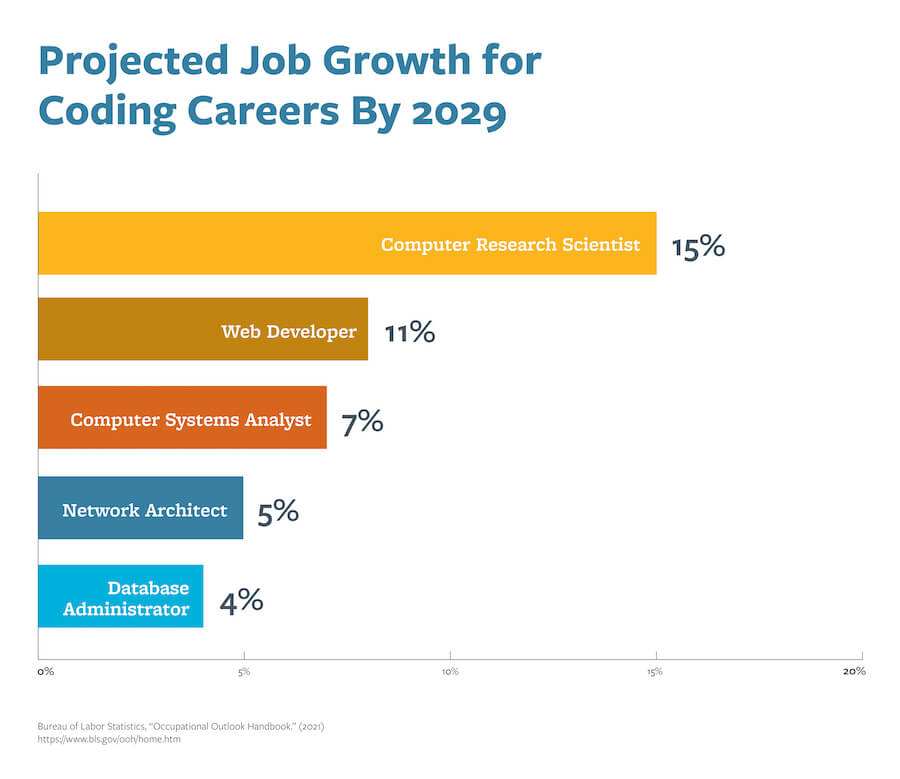Steve Jobs, the late co-founder of Apple, famously said that everyone should learn a computer language because “it teaches you how to think.” Jobs went further, saying that he views computer science as a “liberal art;” one that should be part of every education.
While some may argue with this sentiment, one thing is clear: Coding has grown to impact a wide variety of industries and has quickly become one of the modern employee’s most crucial skills.
Whether it’s used to count monthly car sales or extract photos from a telescope in space, coding forms the foundation of our expanding digital lives. It gives us the power to harness computers to build, shape, and improve countless industries. However, even as more professionals learn to code, many others find themselves unsure where to start.
Below, we will answer these questions and more, walking you through how coding can advance your career as well.
What is Coding?
Coding is the process of translating instructions from our language to the computer’s language. Specifically, machine language is written in binary terms (0s and 1s), so coders write their word-based instructions into an applicable format that the computer understands.
Why Learn to Code?
Learning to code is no longer a “speciality” skill. Rather, it has become a mainstream, core discipline utilized in nearly every industry; requiring more and more skilled workers every year.
Coding tests a variety of abilities. It hones problem-solving and analysis skills, such as finding errors and thinking logically. Further, coding often helps people develop teamwork and interpersonal skills since software and application projects are often cross-disciplinary and collaborative.
Perhaps coding’s biggest attraction is that almost anyone can learn it. Aspiring coders don’t necessarily need to be experts in math or have vast prior experience. To get started, they simply need to be inquisitive, committed to learning, and willing to practice their coding skills regularly while learning from their mistakes. This accessibility makes coding a potential path for career switchers and brand-new professionals alike.
Interested in learning how to code? Berkeley Coding Boot Camp can teach you the skills you need in 12 or 24 weeks.
 Live Chat
Live Chat
